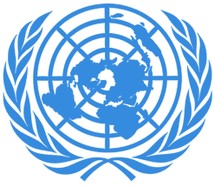A new report by the United Nations states that since the signing of the Revitalized Agreement on the Resolution of the Conflict in the Republic of South Sudan (R-ARCSS) in September 2018, there has been a significant decrease of violations against children.
However, the report of the Secretary-General on Children and Armed Conflict in South Sudan released yesterday covering a period of nearly two years (July 2018 – June 2020), cautions that more needs to be done for the protection of children affected by the ongoing conflict.
The report also verified more than 700 grave violations against children across the country, with Central Equatoria state being the most affected region. The violations are attributed to the Sudan People’s Liberation Army-in-Opposition (SPLA-IO) and government security forces, including the South Sudan People’s Defence Forces (SSPDF).
“I commend the parties to the Revitalized Peace Agreement for their commitment to end and prevent violations and encourage them to continue their efforts and their close cooperation with the United Nations Country Task Force on Monitoring and Reporting”, said the Special Representative of the Secretary-General for Children and Armed Conflict, Virginia Gamba. “Despite this progress, I remain concerned about the situation of children in South Sudan and I urge all parties to fully implement every preventive and protective measure established in the framework of the Comprehensive Action Plan signed with the United Nations in February 2020 and to abide by their obligations under international humanitarian and human rights law.”
According to the report, recruitment and use of children in armed conflict remained the most prevalent violation with more than 300 children affected, of whom nearly half were used in active combat, and it was often connected to other grave violations, particularly abduction.
“I call upon all parties to immediately stop the recruitment and use of children, release and hand them over to child protection actors, in accordance with established protocols, and enable the full and smooth reintegration of children into their communities,” the UN official said.
The report also highlighted that explosive remnants of war were among the main causes of children being maimed and killed in the conflict. Rape, including gang rape, and other forms of sexual violence against children continued to be committed and the vast majority of incidents were attributed to government security forces.
On the occupation of civilian spaces including schools and hospitals, Gamba said, “It is vital that parties to conflict refrain from using schools and hospitals for military purposes. Children should be able to access education and health services without fearing attacks and I call on all parties to undertake all the possible preventive measures during the conduct of their military operations.”
The Special Representative also welcomed the inclusion of child protection provisions in the agreement and highlighted the importance of taking child protection concerns into account at the early stages of any future peace negotiations. She also called for the wide dissemination and implementation of the Practical guidance for mediators to protect children in situations of armed conflict launched in February 2020.




